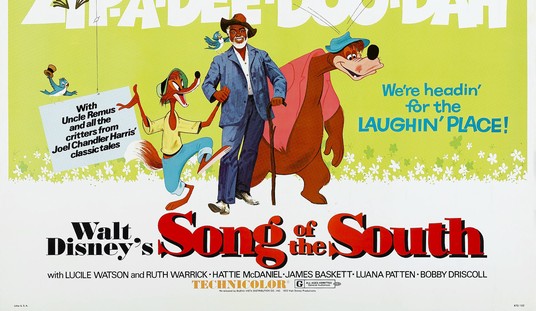Michael Pillsbury and Fu-Manchu
By Spengler
I haven’t ordered Michael Pillsbury’s new book about China’s plot to take over the world (The Hundred-Year Marathon: China’s Secret Strategy to Replace America as the Global Superpower. Instead, I obtained Sax Rohmer’s 1913 novel on the same subject, which can be had gratis from Amazon in a Kindle edition. “The Insidious Dr Fu Manchu” portrays a Chinese genius who plans a rising of the East to overwhelm the West. It has the double advantage of being more entertaining and free.
Michael Pillsbury, a former defense and intelligence official now at the Hudson Institute, claims that China has planned a “hundred-year marathon” since the days of Mao Zedong culminating in world domination. The difference between Rohmer’s fantasy and Pillsbury’s scholarship is that Pillsbury may turn out to be right after the fact. China may dominate the world, and future historians well may reconstruct China’s intent to dominate the world from the same sort of documents that Pillsbury cites.
But China is not planning to take over the world. It doesn’t want the world. It doesn’t like the world – that is, the world outside of China. Unlike Greeks, Romans, Muslims, and European imperialists, it does not want to plant its flag outside its borders, send its young men to conquer and defend new territories, or subject other peoples to colonial rule. Nonetheless, it may inherit the world, reluctantly and by default.
If China does emerge as a world power, it will not be the first time that an empire had greatness thrust upon it. Many of the great world conquests of the past were not conquests at all, but migrations into ruined and depopulated territory. Rome conquered a Greece whose population had imploded between the 5th and 2nd centuries B.C.E., as I reported in my 2011 book How Civilizations Die.
Most of the great battles fought in the so-called Muslim conquest never happened, Yehuda Nevo and Judith Koren argue convincingly in the 2003 book Crossroads to Islam. Arab auxiliaries of the Byzantine army, rather, moved into territory abandoned by the Eastern half of the Roman Empire during the great depopulation of the 7th and 8th centuries.
If China becomes the dominant world power, it will happen because the United States abandoned the role.
After its blunders in Iraq and Afghanistan, the United States has lost the will to assert power in the world’s trouble zones. And after the collapse of the tech bubble in 2000 and the mortgage bubble in 2008, it has lost interest in innovation except in the sterile fields of design (Apple) and social media (Facebook).
I wrote in 2013, “We [the United States] are a disruptive, bottom-up economy driven by entrepreneurship, and we look with contempt at China’s clumsy, top-down model. The trouble is that we haven’t done much innovation since the 1980s. A new generation of well-educated and eager Chinese may assimilate our past innovations and pass us by.” And last September, I warned in the British monthly Standpoint that China may outstrip the West at innovation.
America, to be sure, still possesses far more intellectual firepower than China, but the gap is closing. China now mints twice as many science and engineering doctorates as the United States. China’s high school math curriculum makes the proposed Core Competence program look pathetic. Most importantly, China’s capital markets are far more likely to bet on young entrepreneurs with a new technology than American capital markets. Young Chinese innovators have a better chance of getting rich in China than in the US.
American policy towards China, Michael Pillsbury avers, was based on a set of false assumptions. Here he is right on the money. Among these assumptions were the belief that China is on the road to democracy; that China”wants to be – and is – just like us”; and that “engagement brings complete cooperation”. China has had an emperor for 3,000 years, and the present dynasty (the Communist Party) has increased household income 16-fold since 1987. As the distinguished China watcher Francesco Sisci argues, the present dynasty represents a “golden age” by Chinese criteria.
China is investing massively in high-tech military capacity: satellite-killing missiles, high-velocity cruise missiles, anti-ship missiles, and so forth, as Pillsbury observes. In fact, China’s efforts to move up the value-added chain in manufacturing involve dual-use technologies, that is, military R&D with civilian implications. That is well documented, for example, by Dr Michael Raska at Singapore’s Rajaratnam Institute of Strategic Studies. China wants to be impregnable within its borders and a few hundred miles from its coastline.
What China is not doing, though, is just as informative. The People’s Liberation Army owns not a single ground-support aircraft like America’s A-10 Warthog or Russia’s SU-25. It neither buys them nor builds them. It is not building a land army for regional conquest; it is investing in high-tech capacity with many defense as well as civilian applications to challenge America’s edge in military technology.
This should be something of a Sputnik movement for the United States, a wake-up call like Russia’s 1957 launch of the first satellite into space. Pillsbury is right to call attention to China’s rise, but wrong to attribute Fu-Manchu-like motives to China’s leaders.
On the contrary: China leaders are bemused by America’s sudden and unexpected withdrawal from strategic responsibility, for example, in the Persian Gulf, and struggling to devise a response that would ensure the security of oil supplies without entangling alliances and risky military commitments. It is a comedy of errors rather than a conspiracy, as I wrote in this space last November 10.
America should be concerned, and should respond. But the appropriate response is to restore funding to the gutted military R&D budget, and reform the tax and regulatory environment to encourage investors to risk money on the commercialization of new technologies. China will wake up and take notice if the United States pulls ahead of it in the technology race. If the US fails to do so, anything else it chooses to do will be futile.










Join the conversation as a VIP Member